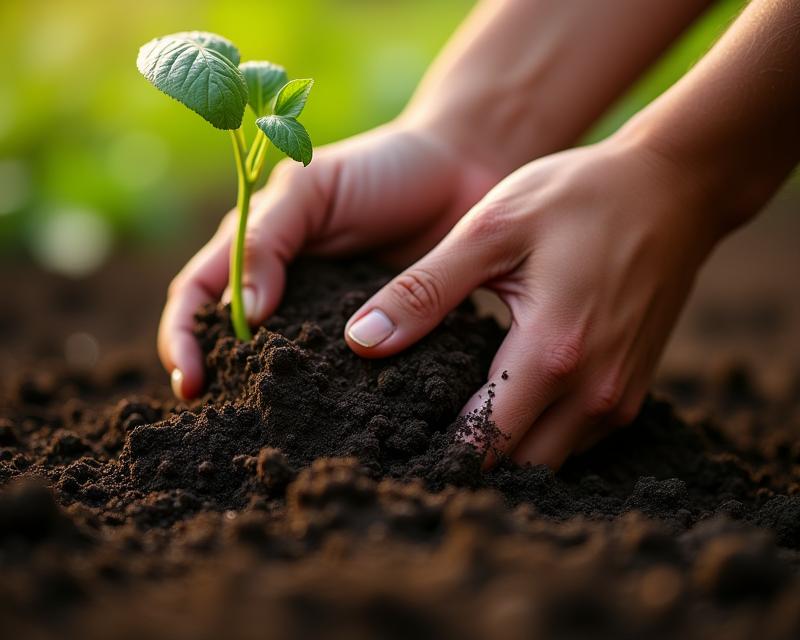Organic Fertilizers & Drought Resistance
Publish in Sustainable Farming el 21/07/2025 00:55
Organic Fertilizers & Drought Resistance: A Winning Combination
Hey Farmers and Gardeners! We all know how unpredictable weather can be, and increasingly, drought conditions are a major concern. But what if I told you there's a powerful way to build soil that can better withstand dry spells? It all starts with organic fertilizers and the incredible benefits they bring to soil health, especially when it comes to water retention.

The Power of Healthy Soil
Think of your soil like a sponge. Healthy soil, rich in organic matter, acts like a super-sponge, holding onto water that plants can access when they need it. This is where organic fertilizers really shine! Unlike synthetic fertilizers that can sometimes harm soil structure, organic fertilizers – like compost, manure, and cover crops – feed the beneficial microbes in the soil. These microbes create a stable soil structure with plenty of air pockets and spaces for water to be stored. This improved structure is key to drought resistance.
How Organic Fertilizers Improve Water Retention
Organic matter acts like a glue, binding soil particles together. This creates a crumbly structure that allows water to infiltrate easily and is held more effectively. Furthermore, organic fertilizers improve the soil's cation exchange capacity (CEC). CEC is the soil's ability to hold onto positively charged nutrients (cations) which also helps it retain water. When you feed your soil with organic matter, you're essentially building a reservoir for water, making your crops more resilient during dry periods. This means less frequent watering and a healthier, more productive farm or garden.
Building Resilience for the Future
Investing in soil health through organic fertilizers isn't just about surviving drought; it's about building long-term resilience. Healthy soil supports stronger, more vigorous plants that are better equipped to handle stress. It also reduces the need for irrigation, conserving precious water resources. Consider incorporating cover crops into your rotation – they add organic matter, improve soil structure, and prevent erosion. Regularly adding compost and manure to your fields or garden beds will also make a huge difference. By focusing on soil health, you're investing in the future of your farm or garden, ensuring its productivity even in the face of challenging conditions. It’s a win-win for you and the environment!





